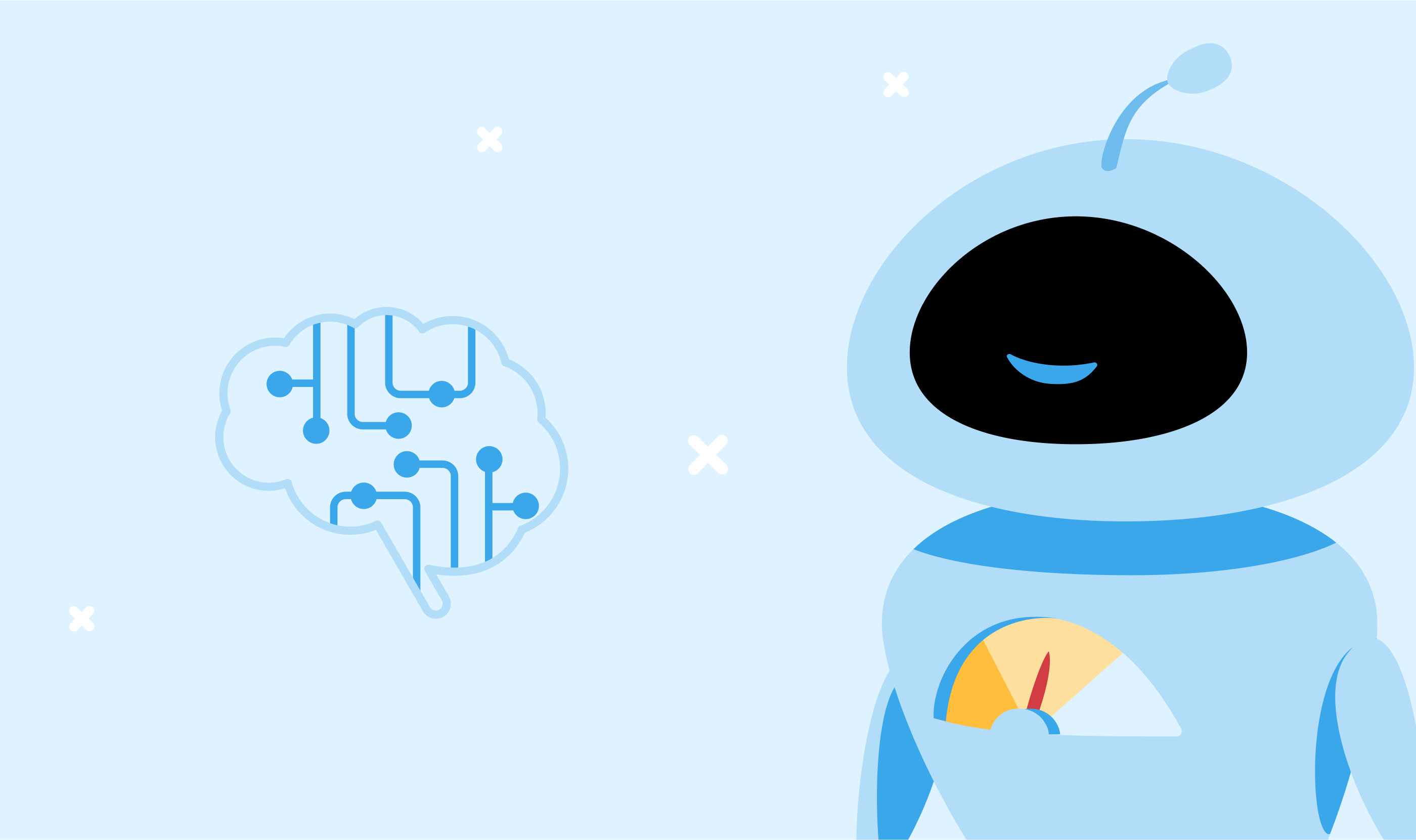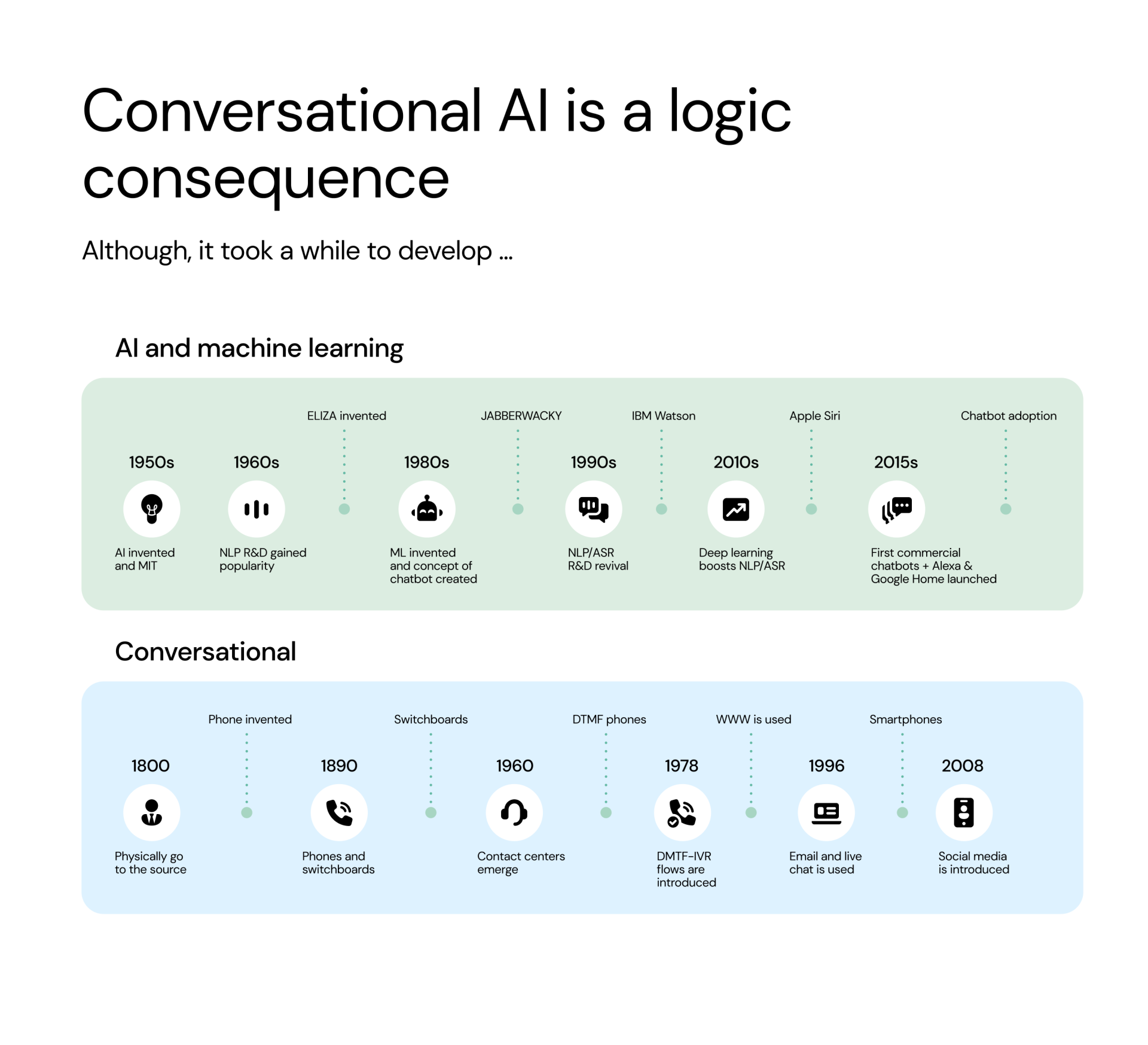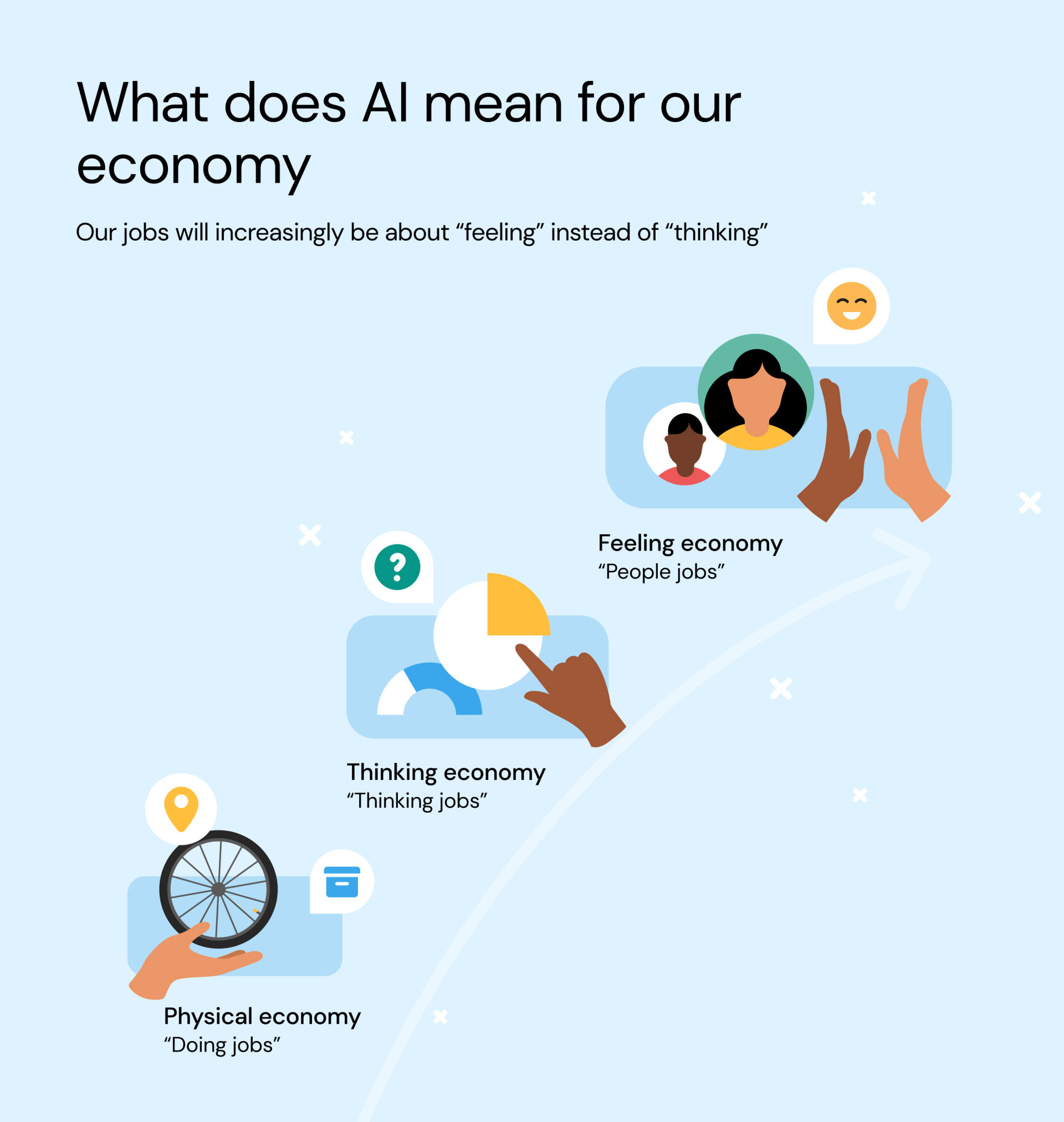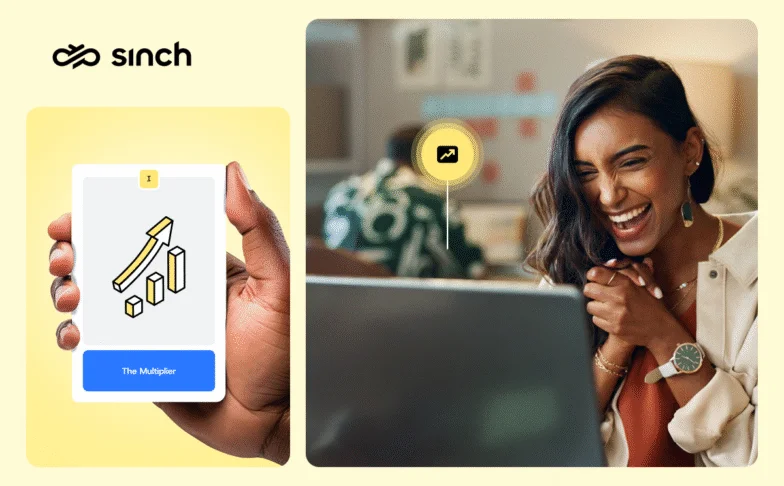Insights, Products
How AI will make us better humans

What’s the first thing that comes to mind when you hear “artificial intelligence”? A super smart technology destined to improve our lives? Machines replacing humans? Or a frustrating customer service bot making you want to scream at your computer screen?
When it comes to artificial intelligence and chatbots, views tend to be either very optimistic, extremely fearful, or downright skeptical. The reality, however, is far less extreme. AI has great potential to streamline work processes, save costs, or handle large amounts of data. Chatbots are here to help humans, not replace us.
And conversational AI is merely the next logical step in the evolution of human communication.
Conversational and AI come together
Humans are conversational beings. When a baby speaks for the first time, its words are remembered and celebrated as a milestone of early development. And throughout history, we have always looked for innovative ways to advance communication.
From telegraphs to cell phones to internet-based instant messaging – technology has made communication easier, faster, and more flexible. Adding artificial intelligence to the mix is just the next chapter of conversational evolution.

Artificial intelligence was invented in the 1950s, but it wasn’t until the late 1990s, when IBM’s supercomputer Deep Blue beat chess grandmaster Garry Kasparov, that the technology got noticed.
Since then, AI has come a long way. We are starting to see more near-human experiences with machines. AI can write poetry, compose songs, and create art. And with the development of natural language processing (NLP), computers are now programmed to understand text and spoken words.
Conversational AI is simply the coming together of advanced AI and conversational technologies. It has led to innovations such as voice assistants, like Siri or Alexa, or companion robots that help elderly people.
Understandably, this leaves people both excited and scared about artificial intelligence’s potential and future.
It’s important to keep in mind, though, that there are different types of intelligence, and machines are better at some, while humans are better at others.
AI thinks, humans feel
Until now, artificial intelligence has gone from mechanical intelligence to analytical intelligence to the early stages of intuitive intelligence.
- In its mechanical phase, AI was only able to learn and adapt minimally. This would be a simple machine that completes a basic task
- In its analytical phase, AI evolved to learn and adapt more systematically based on data. Like an Excel formula, for example
- In its intuitive stage, AI can learn and adapt intuitively based on data, without having to program in a desired outcome. This is where machine learning begins. AI technology has just started to enter this stage of intelligence
There is, however, a fourth type of intelligence: empathetic intelligence. It’s considered the highest form of intelligence and refers to the ability to understand and manage emotions positively to communicate effectively, deal with challenges, and de-escalate conflict.
Comparing the different types of intelligence, it’s fair to say that machines are very good at completing mechanical and analytical tasks, whereas humans excel at intuitive and emotional thinking.
That’s why AI and humans will not compete against each other in the future; but rather support each other’s strengths. AI will specialize in thinking, whereas humans will specialize in feelings. Consequently, we will shift from a thinking society to a feeling society.
From a thinking to a “feeling economy”
Right now, most of our jobs are about thinking. Tasks are focused on processing, analyzing, and interpreting data. As AI improves at these tasks, humans will move to jobs that focus on feeling.

This change is already visible. In the US, the top three growing industries are personal care, financial services, and healthcare. And that’s a good thing!
The feeling economy will also have other implications for our society. Shifting from technical to emotional skills will create a more inclusive society. By focusing more on people and empathy, underserved and disadvantaged communities can experience real change and progress. For example, a feeling economy could help improve education, fight illiteracy and poverty, and provide better medical care.
Because, in the end, AI will not replace humans or jobs – it will allow us to use our strengths to become more feeling and, therefore, more human.



